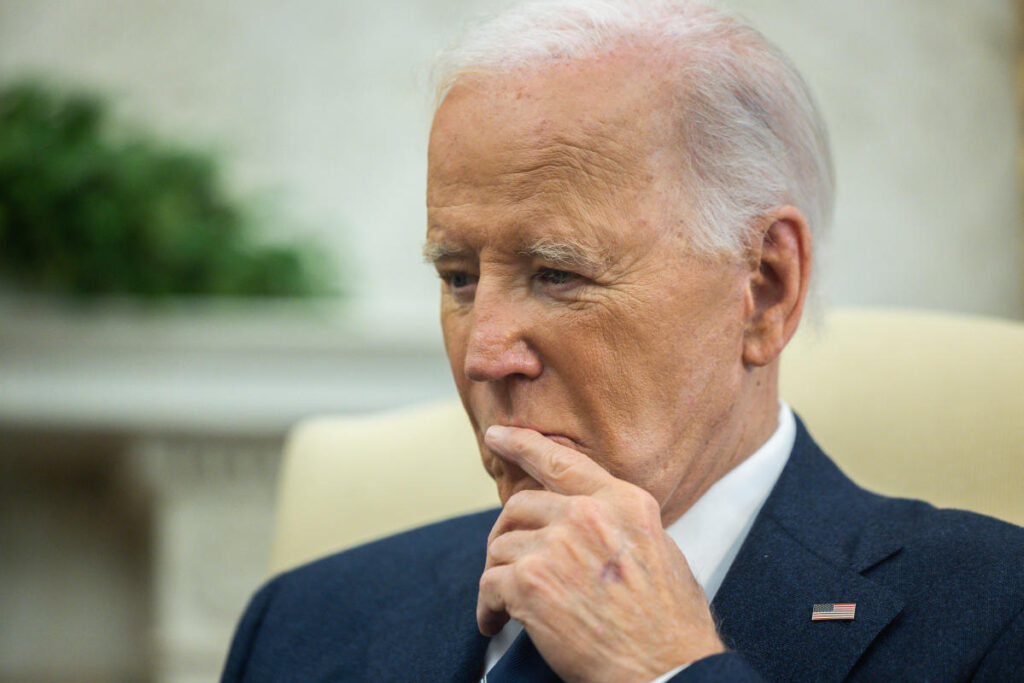Since President Biden’s withdrawal from the 2024 presidential race, he has been focusing on completing his term while aiming to protect Vice President Kamala Harris’s chances against Donald Trump in the upcoming election. However, this task has proven challenging, particularly in light of Biden’s recent controversial remarks. His comment during a video call with a Latino voter registration group, where he seemingly referred to Trump’s supporters as “garbage,” undermined social media narratives that painted both him and Harris in a negative light. Biden’s comments were made in the context of condemning a racially insensitive joke made by comedian Tony Hinchcliffe at a Trump rally, suggesting that the challenge Biden faces is not just about his intentions but also about the perception of his words.
As Harris delivered her impassioned speech to a large crowd in Washington, D.C., positioning herself as a candidate for all Americans and highlighting Trump’s “unstable” character, the backlash from Biden’s words threatened to overshadow her efforts. The appearance of opposition was intensified as many interpreted Biden’s remarks as a reflection of the derogatory language used by Hillary Clinton towards Trump supporters during the 2016 campaign. The timing of Biden’s comment during this critical campaign period raised concerns that it might alienate voters, particularly those of Puerto Rican descent, which could have implications for crucial swing states that are key for Harris’s electoral strategy.
In his attempt to clarify the situation, Biden took to social media, claiming that his remarks solely targeted the “hateful rhetoric” surrounding Puerto Rico and did not imply an attack against Trump’s supporters as individuals. He emphasized that the comments made by Hinchcliffe did not represent American values but rather the vitriol that often accompanies Trump’s campaign rhetoric. However, his attempts at damage control failed to quell the controversy, with many voters still accusing him of casting a wide net of condemnation over Trump’s base.
This debacle aligns with a pattern of Biden struggling to maintain a position that avoids undermining Harris’s campaign messaging. For instance, just a week before the “garbage” comment, Biden had made headlines during an address to Democratic voters in New Hampshire, where he made a cryptic remark about the possibility of “locking up” Trump politically in reference to legal ramifications concerning Trump’s prior conduct. Such comments have inevitably drawn sharp criticism from the Trump campaign, which accused Biden and Harris of attempting to “politically persecute” their opponent. The narrative promoted by the Trump campaign paints Biden’s statements as indicative of an administration that is not upholding the democratic norms it professes to uphold.
Despite Harris’s previous commitments to distance herself from “Lock him up!” chants to maintain a focus on the electoral process rather than the legal implications surrounding Trump, Biden’s rhetoric has undercut her efforts. His frequent and polarizing comments can divert attention from Harris’s initiative to forge broader consensus and appeal to centrist voters, which are critical aspects of her campaign strategy. Balancing the dual role of being the leader while ensuring Harris can maintain her trajectory has become increasingly difficult, especially when faced with controversies arising from Biden’s spontaneous remarks.
In summary, Biden’s recent struggles to contain the fallout from his statements reflect the complexities of navigating intra-party dynamics while trying to support Harris’s presidential ambitions. With the election on the horizon, managing messaging will be crucial for both Biden and Harris to ensure that they do not alienate voters or inadvertently bolster their opponent’s campaign narrative. As they approach the final days of the election cycle, the need for clear and consistent communication will be paramount in addressing both the electorate’s concerns and the damaging impact of missteps that threaten to overshadow their policy discussions and political promises.

